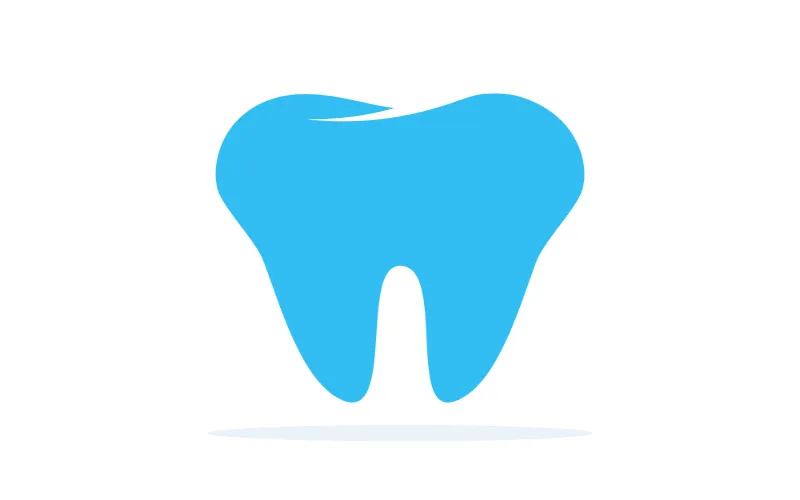The color and health of our teeth are indicators of our overall oral hygiene and well-being. While yellowing teeth can be a common issue due to lifestyle choices or aging, blue teeth can be a cause for concern. Understanding the reasons behind blue teeth, the symptoms that come with it, and ways to prevent and treat it is crucial for maintaining optimal dental health.
Blue Teeth Disease:
The term “blue teeth disease” isn’t a recognized medical condition but rather a description of teeth that have turned blue due to various reasons. It can be a result of intrinsic staining, which refers to staining inside the tooth.
Causes of Blue Teeth
Medications and Drugs:
Certain medications or the prolonged use of some drugs can lead to discoloration of the teeth. For instance, “what drug causes blue teeth?” is a frequently asked question. While no specific drug is named “blue teeth drug”, medications that have metal salts, such as some antipsychotic drugs, can cause a blue-gray tint to the teeth.
Genetics and Rare Conditions:
Some rare genetic conditions might cause blue or gray discoloration in teeth. It’s essential to consult a dentist or genetic counselor for accurate diagnosis and advice.
Trauma:
“My tooth is blue and hurts” – is often an exclamation of someone who has experienced trauma to the tooth. Trauma can lead to internal bleeding, which may present itself as a blue or dark discoloration.
Symptoms of Blue Teeth
Aside from the obvious blue discoloration, other symptoms might accompany blue teeth:
Pain or Sensitivity:
A blue tooth might be sensitive to hot or cold temperatures. If you think, “My tooth is blue and hurts,” you must consult a dentist immediately.
Change in Tooth Structure:
Sometimes, the discoloration may be accompanied by a change in the structure or alignment of the tooth.
Gum Changes:
If you notice symptoms like “why are my teeth blue at the bottom?”, it could be due to changes in your gum health or recession.
Prevention Strategies
Oral Hygiene:
Maintaining good oral hygiene is the first step in preventing any tooth discoloration. Brushing twice daily, flossing, and regular dental check-ups can go a long way.
Mind Your Diet:
Beverages like red wine, coffee, and tea can stain teeth. Regularly consuming these in moderation and rinsing the mouth after can help.
Avoiding Certain Drugs:
It’s always essential to be aware of the side effects of any medication you take. If tooth discoloration is a known side effect, you might want to discuss alternatives with your doctor.
Treatment Options
The appropriate treatment largely hinges on pinpointing the exact cause of the discoloration. Here’s a comprehensive breakdown of the potential treatments:
a. Professional Teeth Whitening:
- Description: This involves a dentist using high-concentration bleaching gels to lighten the teeth.
- Suitability: Best for individuals with mild to moderate discoloration.
- Effectiveness: Results can be seen immediately after one session, but some cases may require multiple visits.
b. Dental Veneers:
- Description: Ultra-thin, custom-made porcelain or resin shells designed to cover the front surface of teeth.
- Suitability: Ideal for teeth with severe discoloration that doesn’t respond to whitening.
- Advantages: They offer a long-lasting solution and are resistant to staining.
c. Dental Crowns:
- Description: A cap that covers the entirety of a damaged tooth.
- Suitability: For teeth that are severely discolored or decayed and can’t benefit from veneers or whitening.
- Advantages: Strengthens and improves the appearance of the tooth.
d. Bonding:
- Description: A tooth-colored composite resin material is applied to the tooth.
- Suitability: For minor discolorations or chipping.
- Procedure: The resin is molded to the tooth’s shape, and then hardened with ultraviolet or laser light.
e. Root Canal Treatment:
- Description: A procedure to treat or save a damaged or infected tooth.
- Suitability: For discoloration resulting from internal tooth damage or nerve issues.
- Procedure: Removal of the damaged area of the tooth (pulp), cleaning and disinfecting it, then filling and sealing it.
f. Replacing Old Restorations:
- Description: Removal of old, discolored restorations and replacing them.
- Suitability: For teeth discolored due to old dental work such as amalgam fillings.
- Advantages: Modern restorations match the natural tooth color, offering a more aesthetic appearance.
g. Addressing the Underlying Cause:
- Strategy: Identifying and treating the primary cause, be it medication or a health condition.
- Approach: Collaboration between the dentist and primary care physician to suggest alternative treatments or medications that won’t discolor the teeth.
h. Regular Dental Cleanings:
- Description: Professional cleaning sessions at the dentist’s office.
- Frequency: Ideally, every 6 months.
- Benefits: Removes plaque and tartar, reducing the risk of cavities and gum disease, while also preventing the buildup of surface stains.
Conclusion
In conclusion, while blue teeth can be alarming, understanding their causes and knowing how to prevent and treat it can ensure optimal dental health. Whether it’s due to blue teeth disease, trauma, or other factors, early detection and intervention are keys to preserving a bright and healthy smile.
Is there a specific drug known to cause blue teeth?
While no specific drug is popularly termed a “blue teeth drug”, some medications containing metal salts, such as certain antipsychotics, can cause a blue-gray tint to the teeth.
What should I do if my tooth turns blue and hurts?
If you experience pain and discoloration simultaneously, consult a dentist immediately. The discoloration could be due to trauma causing internal bleeding within the tooth.
Can I prevent my teeth from turning blue?
Maintaining proper oral hygiene, moderating consumption of staining beverages, and being aware of medication side effects can help in preventing tooth discoloration.
Are blue teeth permanent?
Not necessarily. Treatments such as professional cleanings, teeth whitening, or veneers can address blue discoloration. However, some intrinsic stains might be permanent.
